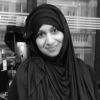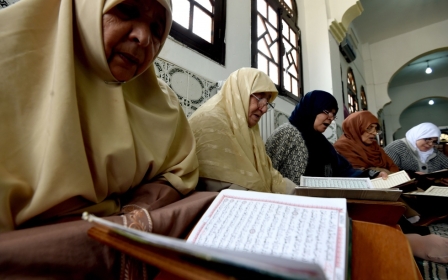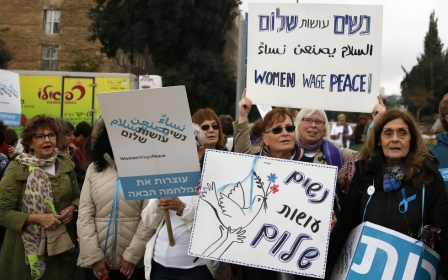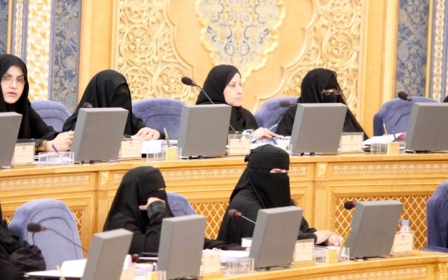How empowered women in the Middle East can spur positive change
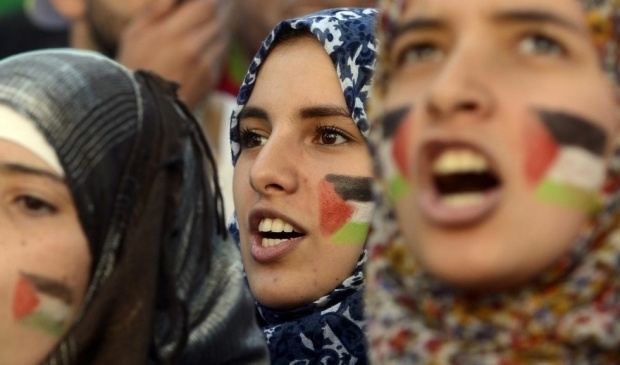
The recent Government Summit held in Dubai saw four key female Arab leaders promote and encourage women in the Middle East to become leaders in their respective fields and enter into entrepreneurial roles. As a firm believer in women’s empowerment, the summit was a welcomed event.
Women in the Middle East have often been subject to discrimination regardless whether or not they are oppressed. Many people have failed to realise that historically there were examples of leading women in the Middle East who were liberated and empowered. A significant example would be dated as far back as the Meccan period in Saudi Arabia when the Prophet Muhammad’s wife Khadija defied traditional stereotypes of women and was a successful and respected businesswoman of her time.
Over a thousand years later, what is the real situation for women in the Middle East and can they really be the mechanism for change? As a woman myself, I sincerely believe with firm conviction that women in the Middle East can contribute positively to country reforms and new political policies that can benefit their respective countries, and use their talents in their professional careers to further excel in society at large.
Throughout the years and more recently, dictatorial governments have often posed challenges to women in the Middle East, such as in Saudi Arabia, where woman are still not allowed to drive. Although governments have exercised their power to restrict women from doing certain activities, social media has been used to pave the way for women to voice their rights. For example, the group of Saudi women who organised the "Women2Drive" campaign encouraged women to disregard the laws and post images and videos of themselves driving on social media to raise awareness of the issue and promote positive change in the law.
If we take a look back at the revolutionary Arab Spring, women were a driving force in expressing their voice through the protests and creating an unprecedented impact to shift the status quo in the Middle East. In the early phase of the Arab Spring, women played a pivotal role in supporting the protests against tyranny and ensuring they played an active part in the protests. However, post-Arab Spring, it has been reported that pre-existing discrimination against women and their gender roles has re-emerged. Therefore there needs to be an investment in the education, entrepreneurship and support for women’s rights so that they can pave the way for a successful future in the Arab world. This can be achieved through the support of initiatives that seek primarily to improve women’s social and legal rights in the Arab world.
Reforms are urgently needed across many regions in the Middle East in a number of areas - from ensuring women’s rights to education and investment resources to equality in the law between men and women.
Secondly, in addition to supporting equality, investment in education would play a pivotal role in bridging gender gaps between men and women. The number of women in the Middle East who are enrolled in educational institutions is still lower than the number of men. Removing the barriers to education for women would play a significant role in helping them obtain the training they need to further achieve their goals.
The UAE Government Summit session entitled "Arab Women: From Vision to Leadership" saw Princess Ameera al-Taweel quite rightly state: “In the Arab world's history, men and women have worked side by side … Behind every great man is a great woman? No. Next to every great man is a great woman.” This is true - women are now taking the lead in various industries from media to activism.
Sheikha Badour, who was also present at the event, said: “Today we need women leaders and role models to deal with the world's social and economic problems.” According to figures from the UN, the Middle East has a low number of female parliamentarians, with only 12 percent, in comparison to the number of female leaders in politics worldwide. The proposed implementation of quotas for women in politics in the Middle East could most definitely help in getting more women on board to voice their views and take up roles in leadership. Badour further stated that “Women in entrepreneurship tend to have a different perspective on product and strategy, which tends to be very valuable.”
Encouraging entrepreneurship is certainly a step in the right direction, but the implementation of such initiatives remains to be seen.
Refreshingly, there is a growing rise of empowered Arab women ensuring their voices are heard, from activists such as Asma Mansour, co-founder of the Tunisian Centre for Entreneurship, to successful Palestinian designer Dana al-Taji, amongst many others. These women are setting the stage for a positive change in political, economic and social reform that can pave the way for empowered women in the Middle East and turn their visions into a reality.
- Tasnim Nazeer is an award-winning Freelance Journalist/Writer and Author who has written for a variety of print and online publications including CNN International, Huffington Post, The Muslim News, Your Middle East, Islam Channel and many more.
The views expressed in this article belong to the author and do not necessarily reflect the editorial policy of Middle East Eye.
Photo: According to figures from the UN, the Middle East has a low number of female parliamentarians, with only 12 percent (AFP)
Middle East Eye propose une couverture et une analyse indépendantes et incomparables du Moyen-Orient, de l’Afrique du Nord et d’autres régions du monde. Pour en savoir plus sur la reprise de ce contenu et les frais qui s’appliquent, veuillez remplir ce formulaire [en anglais]. Pour en savoir plus sur MEE, cliquez ici [en anglais].


